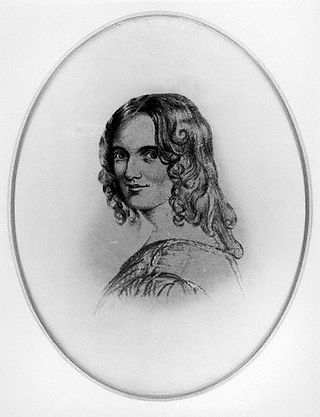
Sarah Fuller Flower Adams was an English poet and hymnwriter. A selection of hymns she wrote, published by William Johnson Fox, included her best-known one, "Nearer, My God, to Thee", reportedly played by the band as the RMS Titanic sank in 1912.

Alice Williams Brotherton was an American author of poetry, essays, reviews, children's stories, and lyrics. Though she hailed from Indiana, she lived most of her life in Cincinnati, Ohio, serving as president of the Cincinnati Woman's Press Club. She wrote critical essays and addresses on Shakespeare, while many of her poems were set to music in the United States and in England. Contemporary poets of Ohio included Helen L. Bostwick and Kate Brownlee Sherwood.

Susannah V. Aldrich was a 19th-century American author and hymnwriter from Massachusetts. She contributed prose and poetry to a number of papers and magazines. Aldrich died in 1905.

Mary Elizabeth Sherwood was an American author and socialite. She wrote short stories, poetry, several books, and etiquette manuals, in addition to contributing to many magazines and translating poems from European languages. Among her writings are The Sarcasm of Destiny, A Transplanted Rose, Manners and Social Usages, Sweet Briar, and Roxobel. Better known as Mrs. John Sherwood, some of her literary works were published as "M.E.W.S." or "M.E.W. Sherwood".
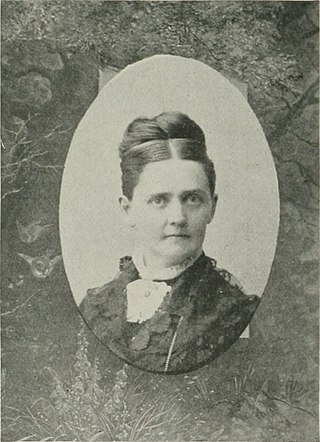
Frances Margaret Milne was an Irish-born American author and librarian of the long nineteenth century. Her works included, For to-day : poems (1893); A cottage gray and other poems (1895); Heliotrope (1897); Our little roman. verses of childhood. (1902); and Passing of the village (1902). She died in 1910.
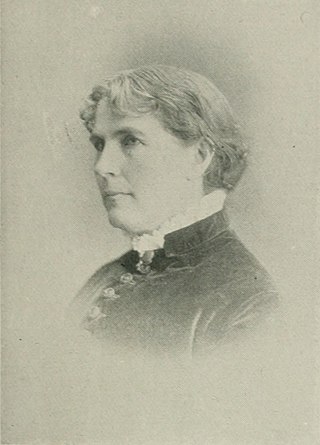
Frances Laughton Mace was an American poet. Her poems first appeared in The Journal of Commerce. She was best remembered for the poem and hymn "Only Waiting", written when she was 18, and published in the Waterville Mail. Its authorship, for a time, was confused. The work was included in her volume Legends, Lyrics, and Sonnets. Her later work was included in Under Pine and Palm (1888) and Wild Roses of Maine (1896). Mace died in 1899.
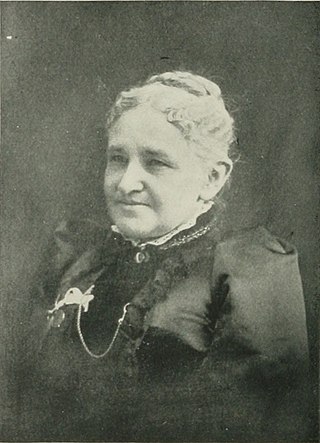
Lucy H. Washington was an American poet and social reformer of the long nineteenth century, active in the temperance movement. For many years, she was engaged in Woman's Christian Temperance Union (WCTU) work, having given addresses in 24 states, and extended her efforts across the country. In 1878, she published a volume of poems, Echoes of Song, and this was followed by Memory's Casket.

Helen Taggart Clark was an American columnist, short story writer, and poet. She wrote a weekly column for the Sudbury, Massachusetts News, and was a contributor to Frank Leslie's Illustrated Newspaper, the Christian Union, the Woman's Journal, and the Springfield Republican.

Martha Capps Oliver was an American poet and hymnwriter. She was the author of A Year of Sacred Song (1895), A Year's Good Wishes (1895), Round the Year with the Poets (1900), The Far West, Easter Legend, and Christmas Legend, as well as several hundred Easter and Christmas booklets and poems, numerous songs, hymns, anthems, and cantatas. Oliver died in 1917.

Adaline Hohf Beery was an American author, newspaper and magazine editor, songbook compiler, as well as a hymnwriter. Born into a Pennsylvania Dutch community, her first job after graduating from Mount Morris College in Illinois was as a compositor in a printing office. She served as the editor of The Golden Dawn magazine and The Young Disciple child's paper; compiled a song-book, Gospel Chimes; and was employed by the Brethren Publishing House.
A. Flowerdew was an English teacher, religious poet and hymnist. Her main work was Poems on Moral and Religious Subjects (1867). She died in 1830.

Harriet McEwen Kimball was an American poet, hymnwriter, philanthropist, and hospital co-founder. “The Poetess of the Church” as she was long called, Kimball's life was largely devoted to literature and to church work. She was one of that group of 19th—century poets of which Henry Wadsworth Longfellow was most prominent and which ministered so greatly to the American love of poetry and appreciation of it that the members of the group were in some sense literary pioneers. Kimball was the last of the group to survive. She died in 1917.

Mary Canfield Ballard was an American poet and hymnwriter. She was a prolific contributor to periodicals, contributing occasionally to thirty of them.

Clara Christiana Morgan Chapin was a British-born American woman suffragist, temperance worker, and newspaper editor.

M. Wintermute was an American author and poet whose poems appeared in The Youth's Companion, as well as other papers and magazines. She was a writer of some celebrity, and the author of a volume entitled Eleven Women and Thirteen Men (1887).

Amelia Minerva Starkweather was an American educator and author who was a lifelong worker in philanthropic and charitable enterprises, and highly successful in evangelistic meetings.
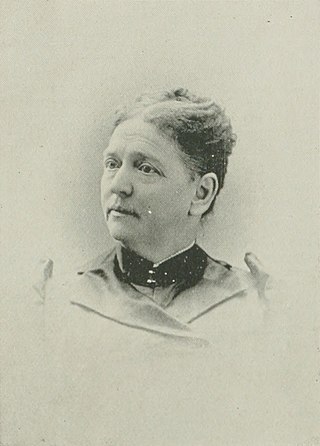
Mary Bassett Clarke was an American writer of the long nineteenth century. She was a contributor to The Flag of Our Union, Rural New Yorker, as well as periodicals issued by the Seventh Day Baptists. Autumn Leaves was published in 1894.

Mary Galentine Fenner was an American poet and litterateur. She wrote for the Rural New Yorker before becoming a prolific versifier. She was also involved in the temperance and suffrage movements.

Alice Arnold Crawford was a 19th-century American author of poetry and short stories. She furnished articles in prose and verse for the leading publications of the day. After her death, an unedited collection of her writings, totaling almost two hundred pages, mostly in verse, was published in 1875 by Jansen, McClurg & Co., of Chicago.
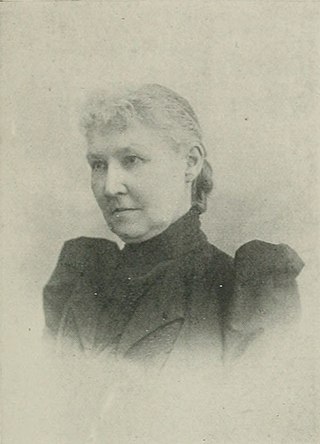
Mary Ware was an American "southland" poet and prose writer. She contributed poems to various periodicals for more than fifty years. She also published a limited edition of her poems for private distribution.





















